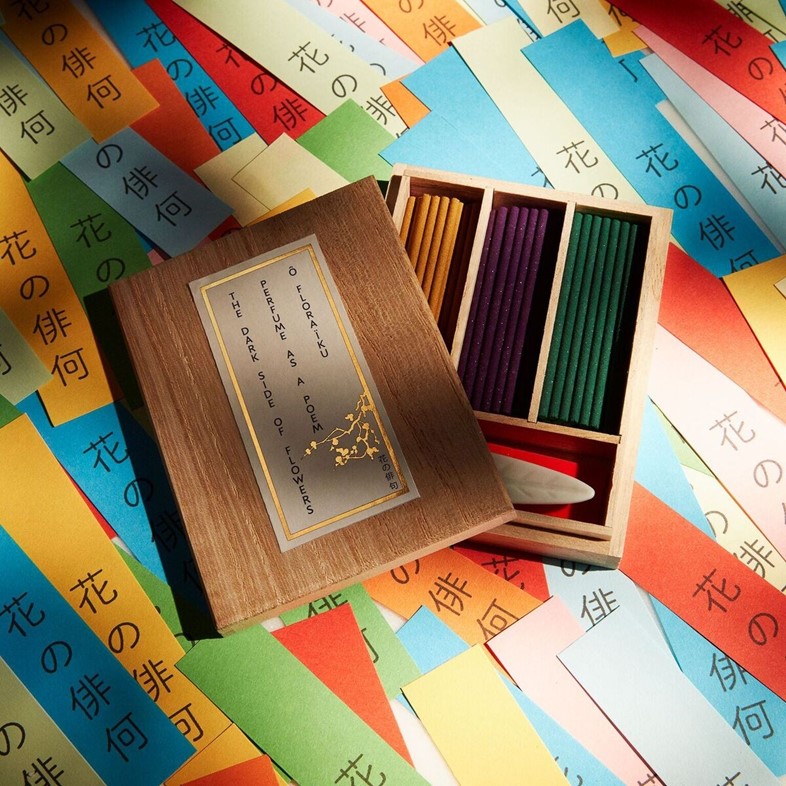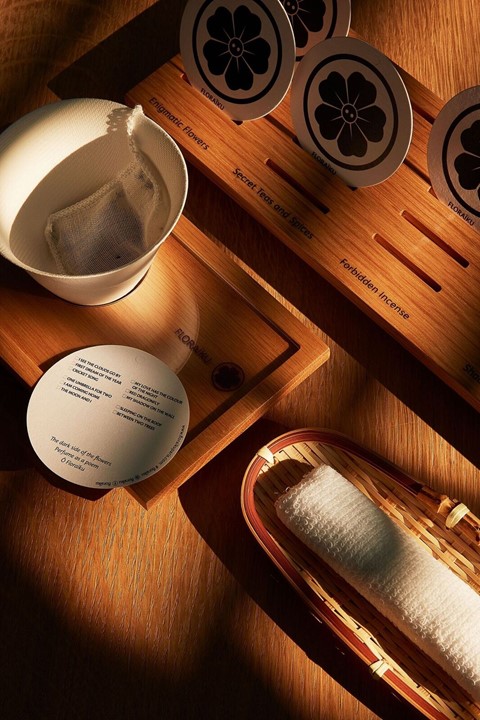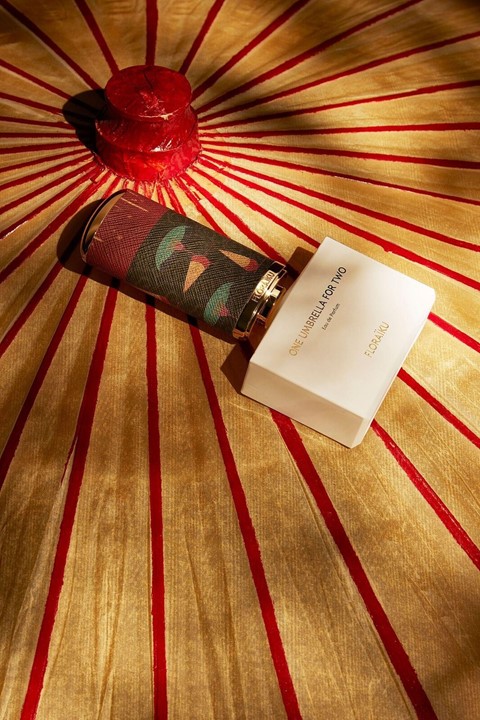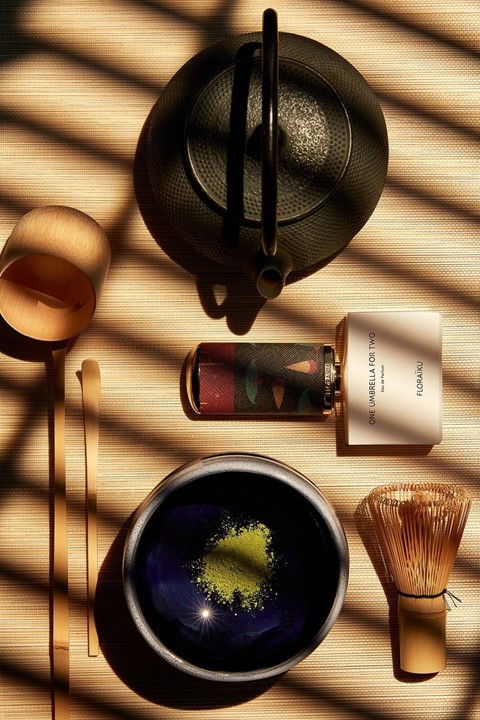“A French dream of Japan,” Floraïku ties perfume together with verse, wanderlust and ritual in one very pleasing package
- Who is it? Floraïku is a new brand from the makers of artisanal perfumer, Memo Paris
- Why do I want it? Inspired by Japan’s cultural and natural landscapes, the act of choosing one of these luxury fragrances comes complete with a tea ceremony and a poetry reading
- Where can I buy it? In the palatial Harrods Salon de Parfums, or online

Who is it? Clara and John Molloy founded Memo Paris ten years ago. Their collection of evocative, destination-themed scents has found its way into boutique and department store stockists worldwide, while the brand’s leather fragrances – choose from Russian or Italian, Irish or African – and Marfa desert-inspired scents, have made their way onto the top shelves of many a fashion-industry insider. When it came to structuring a scent around a Japanese destination, co-founder Molloy felt that the country was too vast and varied a muse to create one single scent: “There were so many things that were inspiring that we couldn’t choose between a landscape or a festival, for instance,” she explains. “We realised there were so many things to tell, that it had to become a brand.” And so working with noses Alienor Massenet and Sophie Labbé, Floraïku, a range of Japan-inspired but France-made perfumes, was born.

Why do I want it? With Floraïku, Molloy offers a truly modern approach to romantic and ancient perfume practices. Launched all at once last summer, there are nine perfumes, three for each ceremony: Kodo ceremony (incense); Ocha ceremony (tea) and Ikebana ceremony (flowers). And two shadowing scents – one light and one dark – to layer over your perfume of choice and either lend a bright freshness or endow it with depth.
Currently, a journey through the collection can only be undertaken on the top floor of Harrods in its exclusive Salon de Parfums. And a journey it is. On embarkation through the scents, one is offered a cup of custom-made tea which rotates on a seasonal basis (bergamot for summer, vanilla for winter, cherry for spring), pooling its source ingredients from the vegetation flourishing in Japan at that time. And yes, you can buy them too. While you sip, each scent is spritzed in tandem with the recital of a complementary haiku-style poem. Though they are not real haikus, they are floraikus: “Just as Puccini wrote Madame Butterfly, this is a French dream of Japan. I can’t really write a haiku in English as they go with the flow of Japanese language. But, inspired by [famed haiku writers Kobayashi] Issa and [Matsuo] Bashō, I’ve written three-line poems that relate to each perfume. Instead of the traditional five-seven-five syllable pattern, each short line simply reflects the three notes of the fragrance: the heart, base and head. It’s about nature, about the season.”
Though flowers, tea and incense are by no means revolutionary inspirations for fragrance, the blends in question are. Take One Umbrella for Two (“Our eyes raise to the sky/No rain/One umbrella for two”): a blend of fruity blackcurrant, Japan’s ubiqitous nutty Genmaicha tea, and the warmth of cedar oil – it’s a captivating concoction of seemingly incongruous notes, addictive in its almost absolute weirdness. The floral- and incense-inspired scents captivate too: from First Dream of the Year’s subversive blend of peppy grapefruit oil with earthy iris absolute to My Shadow on the Wall’s combination of powdery violet and peppery sandalwood. Each of these juices upend the typical approach to traditional perfume ingredients and, when they arrive in their bento box-style packaging, complete with individual leather caps that double up as a travel spray, offer a transportive journey through scent.

Where can I buy it? On Harrods’ sixth floor Salon de Parfums, or online.
